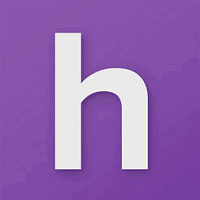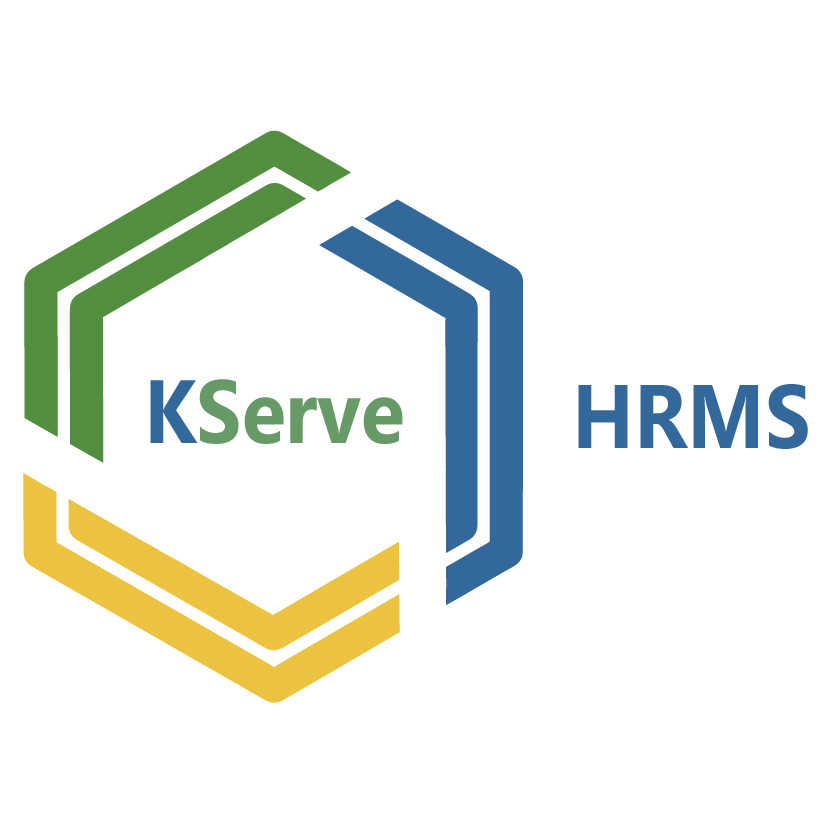Description

HRweb

HRnet
Comprehensive Overview: HRweb vs HRnet
As of my last update, HRweb and HRnet do not specifically refer to well-known standalone HR software products or companies with significant market presence under those exact names. It’s possible that these terms might refer to internal HR systems developed for specific firms, lesser-known HR technology solutions, or product features/components within broader HR software suites. For the purpose of this analysis, I'll provide a more general overview and guide you on how to evaluate HR software solutions, which might be relevant if HRweb and HRnet refer to niche or localized products.
a) Primary Functions and Target Markets:
- Primary Functions: Generally, HR software solutions like what might be under HRweb or HRnet would include functionalities such as employee data management, payroll, benefits administration, recruiting and onboarding, performance management, time and attendance tracking, and compliance reporting.
- Target Markets: The target markets for HR software usually range from small and medium-sized enterprises (SMEs) looking for cost-effective solutions, to large corporations requiring comprehensive and scalable systems. Specific products may cater more towards certain industries or company sizes depending on their feature set and pricing structure.
b) Market Share and User Base:
- Market Share: In the general HR software market, market leaders typically include companies like SAP SuccessFactors, Workday, ADP, and Oracle's PeopleSoft. These solutions hold significant market share due to their comprehensive features and established presence. Without specific data on HRweb or HRnet, it's hard to determine their exact market share, but these are likely more niche players or internal tools with limited exposure compared to the giants.
- User Base: The user base can vary widely based on the actual capabilities of HRweb and HRnet. Larger solutions might support thousands of users across various geographic regions, whereas smaller, focused tools may cater to specific markets or industries with fewer users.
c) Key Differentiating Factors:
- Customization and Flexibility: Differences might lie in how customizable and flexible the solutions are in meeting specific company needs. Smaller or niche products may offer more tailored solutions while larger systems provide a one-size-fits-all approach.
- Integration Capabilities: The ability to integrate with other business systems like finance or ERP systems can be a differentiator. Solutions that seamlessly connect with other existing software can offer greater efficiency.
- Usability and User Experience: User interface and ease of use can significantly differentiate two HR systems. Systems that are intuitive and easy to navigate often see higher user satisfaction and adoption rates.
- Scalability: Depending on the size and growth plans of an organization, the scalability of the HR system can be a critical factor. Some systems may be designed to easily scale up with organizational growth, while others may be limited.
- Support and Implementation: The level of customer support and ease of implementation can set one product apart from another. Products offering substantial training resources, customer service, and implementation assistance may be more attractive to users.
- Pricing: Cost-effectiveness, including upfront costs and ongoing subscription fees, can be a distinguishing factor. More affordable solutions might be preferred by SMEs, while larger enterprises might invest in more expensive, feature-rich software.
To get more precise insights into HRweb and HRnet, you might need to refer to specific product reviews, customer feedback, and market analyses conducted by industry research firms. If HRweb and HRnet are newer or niche tools, direct customer testimonials and case studies from companies using these systems would be valuable resources for assessment.
Contact Info

Year founded :
Not Available
Not Available
Not Available
Not Available
Not Available

Year founded :
2009
Not Available
Not Available
Australia
http://www.linkedin.com/company/hrnet
Feature Similarity Breakdown: HRweb, HRnet
To provide a feature similarity breakdown between HRweb and HRnet, we need to focus on core functionalities, user interface comparisons, and any unique distinguishing features each software offers. Although detailed specifications can vary, here's a general overview based on typical HR software functionalities:
a) Core Features in Common
-
Employee Management: Both HRweb and HRnet likely offer a comprehensive employee database for managing employee profiles, tracking work history, and maintaining contact details.
-
Attendance and Time Tracking: These systems often include tools for attendance management, allowing businesses to track hours worked, tardiness, and absenteeism.
-
Performance Management: Both platforms usually provide features for setting goals, conducting performance reviews, and tracking employee progress over time.
-
Recruitment and Onboarding: Standard features would include modules for managing job postings, applicant tracking systems (ATS), and onboarding new employees.
-
Leave Management: Systems typically offer functionalities for managing leave requests, approvals, and balances.
-
Payroll Integration: Although integration specifics might vary, both systems are expected to interface seamlessly with third-party payroll systems or offer their own payroll functionalities.
-
Reporting and Analytics: Generating reports and analytics on various HR metrics is a common feature that would be present in both systems.
b) User Interface Comparison
-
HRweb User Interface: Generally, HRweb might focus on delivering a straightforward, intuitive interface, emphasizing ease of use for small to medium-sized enterprises. It might prioritize quick navigation and essential feature accessibility without unnecessary complexity.
-
HRnet User Interface: HRnet could offer a more extensive interface with advanced features, possibly catering to larger organizations with more complex HR needs. The design might be robust, providing detailed dashboards and customizable layouts but potentially requiring a steeper learning curve.
c) Unique Features
-
HRweb Unique Features:
- Likely tailored towards smaller organizations, HRweb might emphasize simplicity and cost-effectiveness, potentially offering unique budget-friendly pricing models or simplified integrations with small business tools.
- It may focus on quicker deployment and minimal IT resource usage.
-
HRnet Unique Features:
- HRnet may offer more advanced features for enterprise-level organizations, such as detailed workforce analytics, strategic workforce planning tools, or AI-driven insights.
- It might provide deeper customization options, integrations with larger enterprise systems, or more comprehensive global compliance and multilingual support.
Ultimately, the exact differences and unique features would depend on the latest updates and releases from each product's developer, so it would be beneficial to consult vendor comparisons and user reviews for the most current insights.
Features

Not Available

Not Available
Best Fit Use Cases: HRweb, HRnet
HRweb and HRnet are both human resources management systems (HRMS) designed to streamline HR functions, but they cater to different needs and business sizes. Here’s how each fits into specific use cases:
HRweb
a) Best Fit for Types of Businesses or Projects:
- Small to Medium-Sized Businesses (SMBs): HRweb is the ideal choice for small to medium-sized businesses that need a cost-effective, easy-to-implement HR management solution. It is particularly well-suited for companies that require basic HR functionalities without the complexities of large-scale enterprise solutions.
- Project-Based Organizations: Companies that operate on a project basis, with fluctuating staffing needs, can benefit from HRweb due to its simplicity and ease of use, allowing quick adaptation to changing project demands.
- Startups: Since startups need to optimize resource allocation while still managing essential HR tasks, HRweb provides a streamlined and affordable option for handling employee records, attendance, and performance appraisal.
d) Industry Verticals or Company Sizes:
- Industry Vertical Fit: HRweb serves a broad array of industries by offering generalized HR functionalities that apply across sectors like retail, hospitality, and nonprofit organizations.
- Company Size: Typically targeted at businesses with fewer than 250 employees, HRweb delivers core HR capabilities without overwhelming small HR teams with unnecessary features.
HRnet
b) Scenarios Where HRnet is the Preferred Option:
- Large Enterprises: HRnet is designed to support larger businesses with more complex HR needs, offering scalability and advanced features that accommodate thousands of employees.
- Global Organizations: Companies with international operations can benefit from HRnet’s ability to provide multi-currency and multi-language support, handling diverse regulatory requirements across regions.
- Industry-Specific Needs: Organizations in industries with complex compliance and regulatory requirements, such as healthcare or finance, may prefer HRnet for its robust tracking and reporting capabilities.
d) Catering to Different Industry Verticals or Company Sizes:
- Industry Vertical Fit: HRnet can cater to specific industry needs by customizing workflows and compliance tracking, making it suitable for regulated industries like manufacturing, energy, or aerospace.
- Company Size: Focused on enterprises with 250+ employees, HRnet is built to support intricate organizational structures, extensive reporting, and the management of large, dispersed teams.
Both HRweb and HRnet offer the foundational HR functionalities needed by organizations to manage employee information, track performance, and ensure regulatory compliance. However, the selection between the two depends on company size, budget, complexity of operations, and specific industry requirements.
Pricing

Pricing Not Available

Pricing Not Available
Metrics History
Metrics History
Comparing teamSize across companies
Conclusion & Final Verdict: HRweb vs HRnet
To determine which product, HRweb or HRnet, offers the best overall value, several factors such as functionality, ease of use, customer support, integration capabilities, and pricing need to be considered.
Final Verdict
a) Best Overall Value
-
HRweb: Offers a good balance of essential HR features at a cost-effective price point. It caters well to small to mid-sized businesses that need straightforward HR solutions without an extensive need for customization.
-
HRnet: Generally, a more robust and comprehensive HR solution, ideal for larger organizations or those with complex HR requirements and the need for advanced features such as sophisticated payroll modules, in-depth reporting, and more customization.
Verdict: For smaller to mid-sized businesses seeking budget-friendly solutions with essential HR functionalities, HRweb provides better overall value. Conversely, for larger companies that require a comprehensive package with more complex functionalities and customization, HRnet might offer more value.
b) Pros and Cons
HRweb:
-
Pros:
- Budget-friendly.
- User-friendly interface and easy setup.
- Strong basic HR functionalities such as attendance, leave management, and employee record maintenance.
- Suitable for small to medium-sized businesses.
-
Cons:
- Limited advanced features.
- Fewer customization options compared to more sophisticated software.
- May struggle with scalability as business grows.
HRnet:
-
Pros:
- Comprehensive HR management features, including payroll, benefits management, and advanced analytics.
- High level of customization and integration with other business systems.
- Scalable solutions that grow with the size and complexity of the organization.
-
Cons:
- Higher price point, which might not be justified for smaller businesses.
- More complex setup and potentially a steeper learning curve.
- Potential for under-utilization if the breadth of features is excessive for the business’s needs.
c) Recommendations for Users
-
Assess Business Size and Complexity: For small businesses with straightforward HR needs, HRweb could be sufficient. For larger organizations or those anticipating rapid growth, HRnet might be more appropriate due to its scalability and advanced feature set.
-
Budget Considerations: Consider what budget is available for HR software and balance that against the necessity for advanced features. HRweb provides good functionality at a lower cost, while HRnet may require a higher initial investment.
-
Feature Requirements: Match specific HR needs with the software capabilities. If advanced analytics, extensive reporting, or comprehensive payroll functionalities are a priority, HRnet could be the better choice.
-
Trial the Software: Take advantage of demos or trial periods to test each system’s usability and functionality. This hands-on experience can be crucial in deciding which software aligns best with your operational needs.
-
Customer Support and Training: Evaluate the level of customer support and training resources each provider offers. Efficient support can significantly enhance the user experience and ease the transition to a new system.
Ultimately, understanding the unique demands of your organization and aligning them with what each product offers will guide you to the right choice between HRweb and HRnet.
Add to compare
Add similar companies




